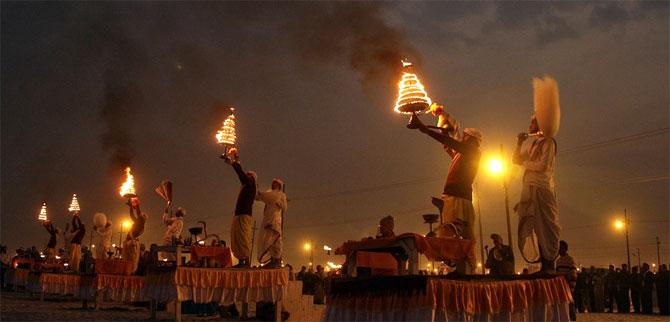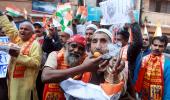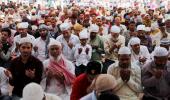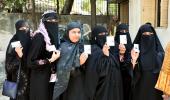Using the same methodology as the EAC-PM study, the fastest-growing religious population is, in fact, the Buddhists.
The Buddhist population increased by over 1,600 per cent between 1950 and 2015.

Interpretations of a recent paper from a government-linked body suggested that the share of the Muslim population has grown in the country, while the share of the majority Hindus has fallen between 1950 and 2015.
India has added around five Hindus for every Muslim since 1950, according to a Business Standard analysis of the data from the same source as the study -- the Association of Religion Data Archives.
Interpretations of an Economic Advisory Council to the Prime Minister (EAC-PM) working paper released recently suggested a significant rise in the Muslim population, even as the Hindu population has declined.
The paper itself does not suggest this. It points out that the percentage change of the relative population share is higher for the Muslim population.
The EAC-PM study, which analysed the population growth rates of religious majorities and minorities across countries, concluded that while the share of the Hindu population in India declined by 7.81 per cent between 1950 and 2015, that of Muslims increased by 43.15 per cent.
According to the report, this assessment was worked out by subtracting the change in the share of religious population between 1950 and 2015, and then further calculating this difference in the share as a percentage change over the respective religious population share in 1950.
A more conventional way of saying the same thing is that the share of Muslims in India's population rose 4.2 percentage points even as the Hindu population share fell 6.6 percentage points.
Studies have pointed out that changes can be explained by differences in fertility, which in turn is strongly connected to the education levels of women.
The Hindu population was roughly about 320 million in 1950, which has more than tripled in the past seven decades.
In absolute figures, the Hindu population remains the largest religious denomination in the country. During the same period, the Muslim population has risen fivefold, from 37 million to 181 million. Among other religious minority groups in the country, the Christian and Sikh populations have also grown faster than the Hindu population.
Moreover, while the share of Hindus in India's total population has declined from 85 per cent in 1950, they still account for around 78 per cent of the total population.
The share of Muslims however, who made up 10 per cent of the total population in 1950, increased to 14 per cent in 2015.
Other religious minorities in India, including Christians, Sikhs, Jains, and Buddhists account for more than 5 per cent of the total population in 2015, slightly higher than the 4.5 per cent share of 1950.
Total fertility rates (TFR) among Muslim women have seen the sharpest decline in the three decades after 1992 according to NFHS data. The TFR for Hindu women has dropped by 1.36 and those for Muslim women by 2.05.
Educational attainment among Muslim women is likely to lag other religious denominations. Around 11.4 per cent of Muslim women have completed more than 12 years of schooling compared to 17.1 of Hindu women and 23 to 24 per cent of Christian and Sikh women.
Interestingly, using the same methodology as the EAC-PM study, the fastest-growing religious population is, in fact, the Buddhists.
The Buddhist population increased by over 1,600 per cent between 1950 and 2015, the Christian population by 5 per cent, and the Sikh population 7 per cent, according to Business Standard calculations.












 © 2025
© 2025